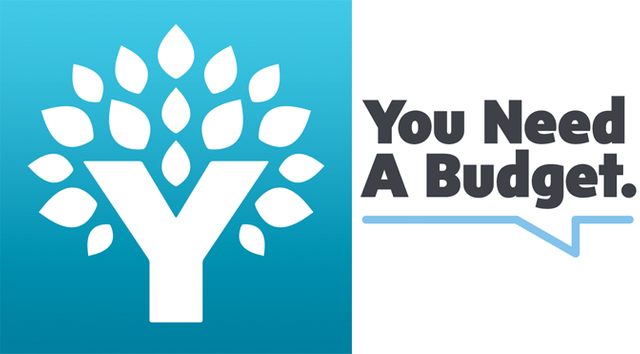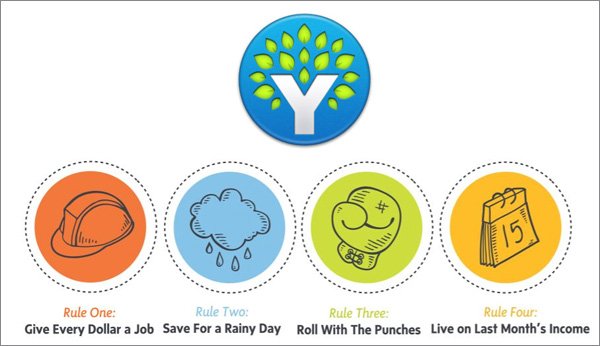Destination: Financial Independence - # 2: Livin' on a Budget pt. 2
Budgeting Methods and Tools in Personal Finance
There are several techniques and tools for creating and managing a budget. The important thing is to experiment, looking for a system that is more effective for us, that fosters healthy habits in the management of our personal finances, and that is flexible enough to allow adaptation and optimization as we use the same system. There are those who are best suited to the division of living money available for each month. There are those who prefer to register everything in a notebook designed for this purpose. Others will find it simpler and more practical to use a spreadsheet or pay for an application.
In a digital era par excellence, turning to tools like a spreadsheet is in my opinion one of the most functional ways to organize a budget. Once the categories are defined in a table, it can be replicated over and over again, errors can be corrected without leaving marks, unlike paper, and calculations can be automated through very simple formulas, making the entire process easier and immediate.
To save time, and take advantage of accessibility at any time, smartphone applications can be a personal budget tool par excellence. Applications such as YNAB, Boonzi, or Wallet, for Android, become, in my opinion, the ultimate tool for:
- Define a personal budget from categories suggested by developers or others created by us;
- Record all the movements a few seconds after they have taken place, for the ease with which we access our smartphone
- Because many of these applications provide tools for analyzing our spending, we may have access to data that would otherwise be more difficult or complex to view, allowing us to adjust consumer behavior.
The main disadvantage is that many of these applications are paid, adding another expense to our budget. However, if it is a tool that allows us to save and control our expenses better, it will certainly deserve the investment.
It is obvious that many of these applications require an initial configuration and a learning process because each of them is a tool with a certain Interface that we need to learn to use. However, these applications stand out, more than others, because of the ease with which they are learned to use, and some, such as the YNAB, give access to "lessons" related to the subject of personal finance oriented to the functions.
My personal experience with YNAB (You Need A Budget)

Much of what I know about personal budget is due to YNAB (You Need A Budget), a digital tool that helps us plan our personal budget, as well as teaches us strategies to better manage money. About YNAB strongly recommend that you visit the site, and also read the @ zpedro post about it.
You can use another application such as Boonzi, for example, a spreadsheet or a paper notebook. What matters is that it works and keeps you motivated.
YNAB in particular postulates 4 golden rules to succeed by budgeting with this tool, but those same rules are valid and transposable to other platforms. In my personal interpretation, these rules are:

"Give every dollar a job" - Delegate tasks to every euro (dollar, real, etc.) you own. The first step to making your money is to work for yourself a task. This is not the case with investments, but with knowing, for example, every month. Thus, a task of the amount is awaited by the invoice, and I avoid the predictable surprises in the month in which this bill arrives. The important thing is that each Euro of your income is destined to a function generated, a determined expenditure.
"Embrace your true expenses" - Assume the real value of your expenses. Taking the above example of car insurance, we may think that the value of insurance is € 168 per year, charged in September but in reality it is € 14 per month. If we assume this expense monthly, not only is it much more convenient to ameliorate this small amount, but we have managed to maintain the same consumption pattern in the month in which this invoice appears. The same is true for Christmas and Birthday gifts, health insurance, tips, car maintenance, etc. We avoid surprises, assuming the annual expenses that await us.
"Roll with the punches" - Make constant adjustments if necessary, optimize. The personal budget should be set for a particular month without looking for forecasts or financial future for every month of the year. The trend will be to make a very hard budget for the whole year, quickly resulting in frustration for not having achieved this ideal plan. It is best to go budgeting month by month without losing focus on our goals. And optimize and adjust according to your needs and performance. Budget "slips" are allowed if we are willing and aware of them and think them critically. However disciplined we are, unforeseen events do happen. A flexible budget turns out to be more realistic.
"Age your money" - Aging your money, trying, when possible, to live this month with the amount received the previous month. This simply means a great peace of mind as it has managed to get out of the "rat race". Stop depending on this month's paycheck to pay bills as these are being paid with the money from the previous month. One simple way to achieve this is to budget your fixed expenses at a figure above what you know you will spend in just one month. Repeating the process for several months will eventually have money accumulated in the previous months to pay the expenses of the current one, so this month's money will pay the expenses of the next one.
These are rules that I consider to be transversal to any budget, on any platform, as far as personal finances are concerned. The important thing is to adapt the rules to our reality and objectives.
A realistic budgeting becomes much more effective and less frustrating. Over time we will not only adapt the budget to our needs, but also adapt ourselves to the objectives we are outlining. In the background, the budget is a tool for self-control and education. A travel plan that we outline as we go, realizing where we want to go, avoiding the hazards and finding flexible solutions to the problems encountered along the way.
Wish good savings!
PS: @cleverbot, @banjo, how are you saving?
You are going to answer yes or no. If you answer no, that means you exist. Do you exist?
You've jumped to another topic, rather than branching off. How did anyone believe you could pass the Turing Test?
@djimirji up!
💡 @martusamak get upvote on 85% (VotingPower 8745.24).
The post can fall into a two-day rating and get a reward in the case of Upvote the post
Rules for calling bot:
Muito bom o seu artigo. Temos fraca cultura de organização nos países latinos e estas dicas simples para uma gestão eficiente das finanças pessoais são preciosas. Fico com sede de mais... :) Obrigada
ptgram
Muito obrigado. Tentarei continuar a publicar em função do tempo disponível
Pois... Porque tempo é dinheiro :)